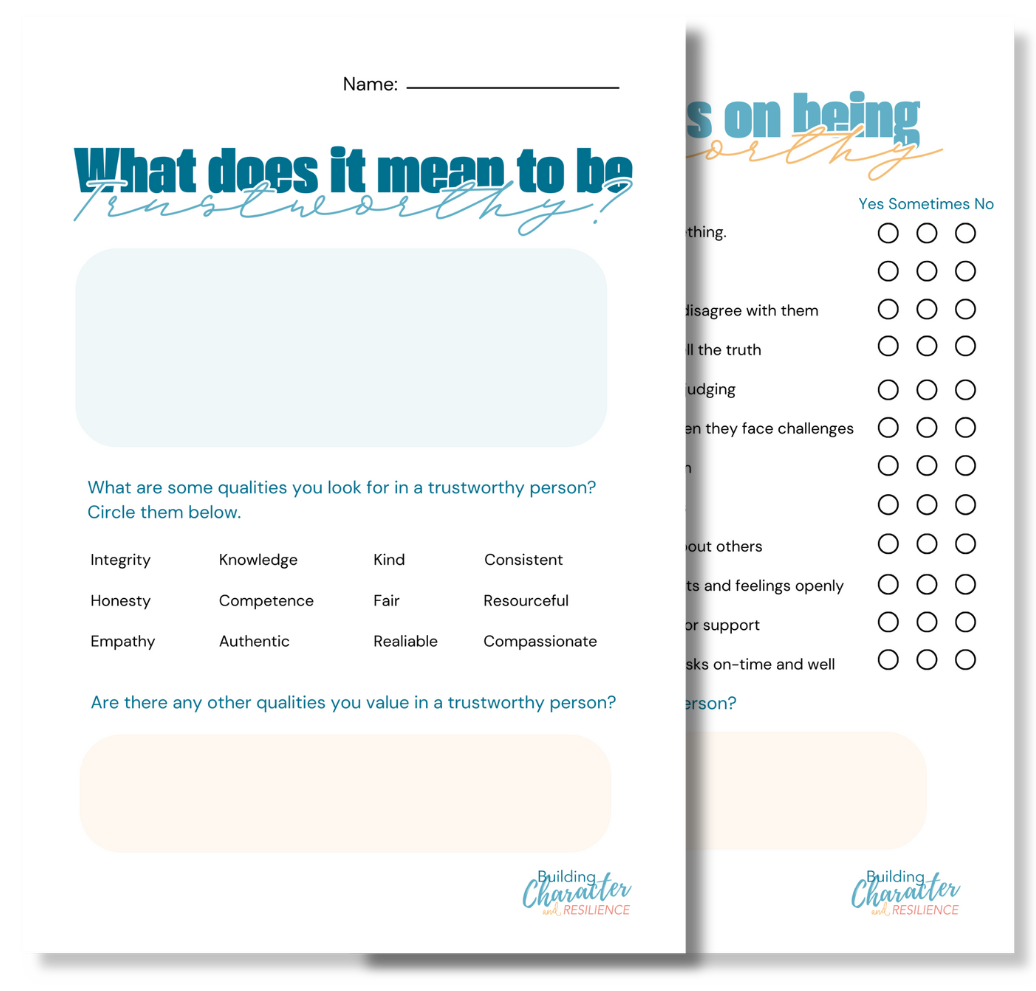Why we Need Trustworthy Teachers
In our relationships, there is one fundamental factor that drives motivation: trust. It helps us to take risks and strive for challenging goals, fostering a sense of safety that encourages open communication and collaboration. Author Stephen R. Covey states:
“Trust is the highest form of human motivation. It brings out the very best in people. But it takes time and patience, and it doesn’t preclude the necessity to train and develop people so that their competency can rise to the level of trust.”
From a child’s earliest stages of development, they rely on their parents and caregivers to be trustworthy. Research from developmental theorists such as Erik Erikson, John Bowlby, and Mary Ainsworth shows that a lack of trust or attachment can have long-term consequences for a child’s emotional and social development. It can also contribute to difficulties in forming healthy relationships, and increased mental health issues.
Being trustworthy is important. Even as we move beyond our early stages of development, we still need someone who provides a secure base from which to confidently explore our world. Sadly, many students and even colleagues lack healthy and trustworthy relationships. Despite this, trust and attachment issues can be healed, and we can begin by becoming a trustworthy person to those around us.
There are many benefits to building a trusting character and environment. Trusting environments have been shown to enhance performance. For example, in a classroom context, students who show a high level of trust in their teachers—particularly in their competence, integrity, and beneficence —are more willing to work hard and take on more challenging tasks.
There are many ways to build trust with our students. According to professor of psychology Stephen L. Chew, teachers can
- Take a more holistic view of our students, understanding their anxieties and challenges.
- Be clear about our class goals and methods.
- Promote a sense of belonging and community in the classroom.
- Set firm guidelines on dignity and respect.
- Give students multiple opportunities and means to demonstrate their learning.
- Provide formative feedback.
- Admit any mistakes.
- Show flexibility in assignments and deadlines where possible to let students do their best work.
On the other hand, teachers should avoid
- Being indifferent or irritated with student concerns and questions.
- Being inconsistent.
- Playing favourites in class.
- Humiliating or embarrassing students.
- Making insensitive or prejudiced remarks.
- Basing actions on personal convenience rather than what would be best for student learning.
Let’s work together to create a culture of trust! What strategies have you found effective in building trust in the classroom? Let us know in the comments below!
You might have noticed the positive habit of trustworthiness in your Createl student diaries. This article, along with the related sections in your student diaries, is part of the Building Character and Resilience Program (BCR). The BCR program includes resources such as lesson guides, Google Slides, and worksheets to help students and teachers explore the important habit of trustworthiness, along with 47 other positive habits that equip students to flourish both in and out of the classroom.
Free Resources
Primary
Secondary






Leave a Reply